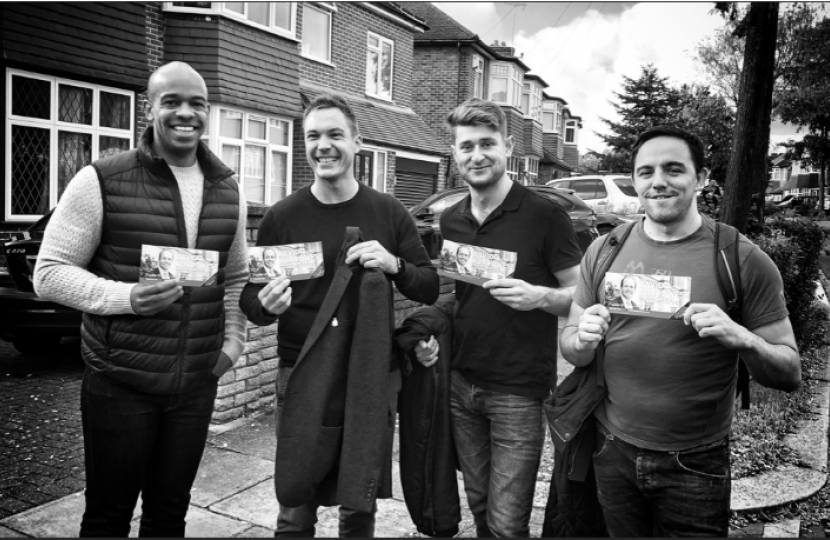
I imagine a lot of us have found a little more time on our hands recently. Be that the extra hour without a commute or the meetings that actually could have been an email. It has given me the opportunity to read up a little more on the final days of World War Two. Often a footnote at the end of tomes on D-Day or Arnhem, the conflict continued for almost a whole year in the epic push to Berlin. On the day of writing, 23 March, in 1945 the 7th Battalion, The Black Watch, became the first British battalion to cross the Rhine into Germany and just over six weeks later allied victory would echo across the continent. With the current Coronavirus outbreak spreading through Europe over the past few weeks, the emphasis grows both verbally and literally on a continent returned to a war footing.
I recall my days at the Sandhurst Academy when, in between lessons on camouflage and clambering over assault courses, we would pull on our woollen jumpers and itchy trousers and listen to eccentric academics talk about battles of ancient history and the modern day. A frequent misconception that was cleared up during lucid moments in this warm sanctuary away from the military staff was that Von Clausewitz’s idea of total war did not in fact refer to some form of mercilessness assault against our enemy but rather the mobilisation of the entire nation against the nemeses.
The two World Wars provide the obvious examples. Industry, trade, politics the media and the populous were activated to combat the enemy at the gates. The current coronavirus outbreak sees many similarities; industry is answering the call to produce ventilators and innovating towards new tests and vaccines at a phenomenal rate and the media, for the most part, are providing advice and entertainment in these troubling times. Parts of the economy are, oddly yet rightly, in full reverse; with governments all around the world purposefully shutting down industry to preserve fragile health systems and the most vulnerable in society. Yet one instrument which the UK Government has been reluctant to deploy until now is the Armed Forces.
Despite the high regard in which the United Kingdom holds its Armed Forces, successive governments have been reticent when it comes to deploying the military on its own streets. Certainly more than our European neighbours whose comfort with aspects of martial law is alien to us. There are plenty of sensible reasons why. Governments make contingency plans and believe the specialist organisations they have set up can cope. Certainly in situations of domestic security the training of our Armed Forces to act in civil defence is not appropriate for many of the tasks assigned to Counter-terror or Armed police. Most of all though, deploying the Armed forces shows a degree of severity that needs to be kept to exceptional circumstances only. This remains true in a domestic sense as well as in the more normal, international, conflict taskings.
The Government has, rightly in my opinion, begun to use the military for logistical and supply chain support, alongside the standing commitment of many military doctors and nurses who already serve in full-time NHS roles. Should this epidemic escalate significantly, our soldiers could also be posted into more security critical roles such as seen after the London Bridge terror attacks. This raises an important question of capacity. An acronym we will start to hear more is MACA (Military Aid to the Civil Authorities). Typically this has been held at ten thousand military personnel on various levels of readiness. This is about 7% of the whole regular military. For the coronavirus outbreak this has been raised to twenty thousand. The vast majority of these troops will be from the Army which currently hovers around eighty thousand. By a crude calculation the MACA contingency force plus the additional commitment therefore represents around one quarter of the Army. Given various operational cycles and deployments, which of course can be curtailed if the homeland is at risk, this is an even greater proportion of troops. The point is that the Army and Defence, much like many public services, have seen capacity trimmed and therefore the strategic reserve has become a rather thin red line.
As a Conservative I am of course a pragmatist. I was heavily involved with battlefield technology when I was an officer and that can be a force multiplier and therefore justify a certain reduction in the number of troops or efficiency of practice. I also understand that there is not an endless supply of resource and prioritisation is critical. Nonetheless, as the military is the instrument last resort for the government, its whole purpose is to provide capacity for unforeseen events and it remains the most critical part of our national security. It is however this capacity provision, by definition to remain unused until the most critical time, that leaves our military vulnerable to governments who do not always realise its true virtue.
I look forward to immersing myself in the international and national “debrief” once this tumultuous period is over. The upcoming SDSR, is an ideal time to analyse and establish what our military has done for and what it means to our country. First and foremost must surely be a renewed understanding from all levels of government about the nature of a strong military whose power must be nurtured during long periods of peace such that it can be unleashed in extremis.
In this time of total war, against a disease, the Armed Forces yet again steps up to the challenge alongside our NHS. In 1945 the Black Watch was itself a Regiment itself with seven battalions and now is a component part of a single regiment. The nature of the enemy may have changed but the fundamental necessity for a strong and properly resources military remains constant. Governments must not have a short memory when it comes to resourcing the military effectively. Our soldiers’ will to carry on is exceptional; our government’s actions to support them must be exceptional too.
Link to original, firs published by Conservative Friends of the Armed Forces on 01 Apr 2020.




